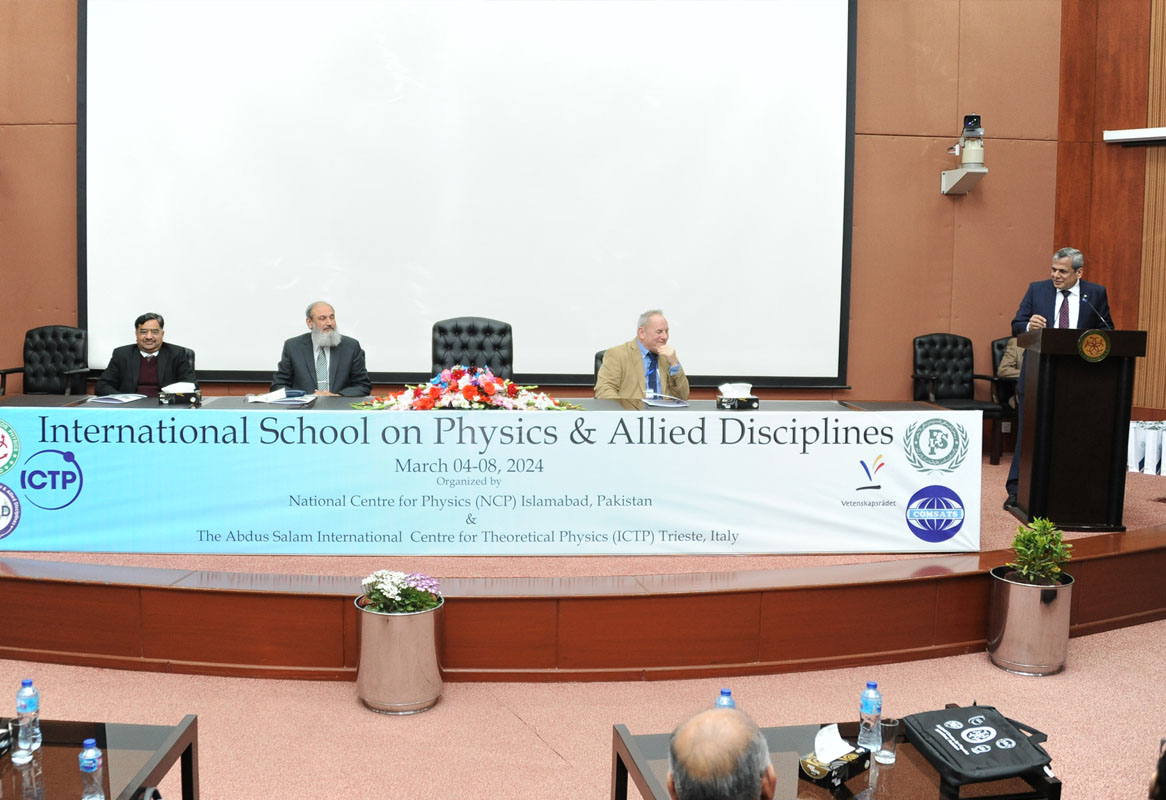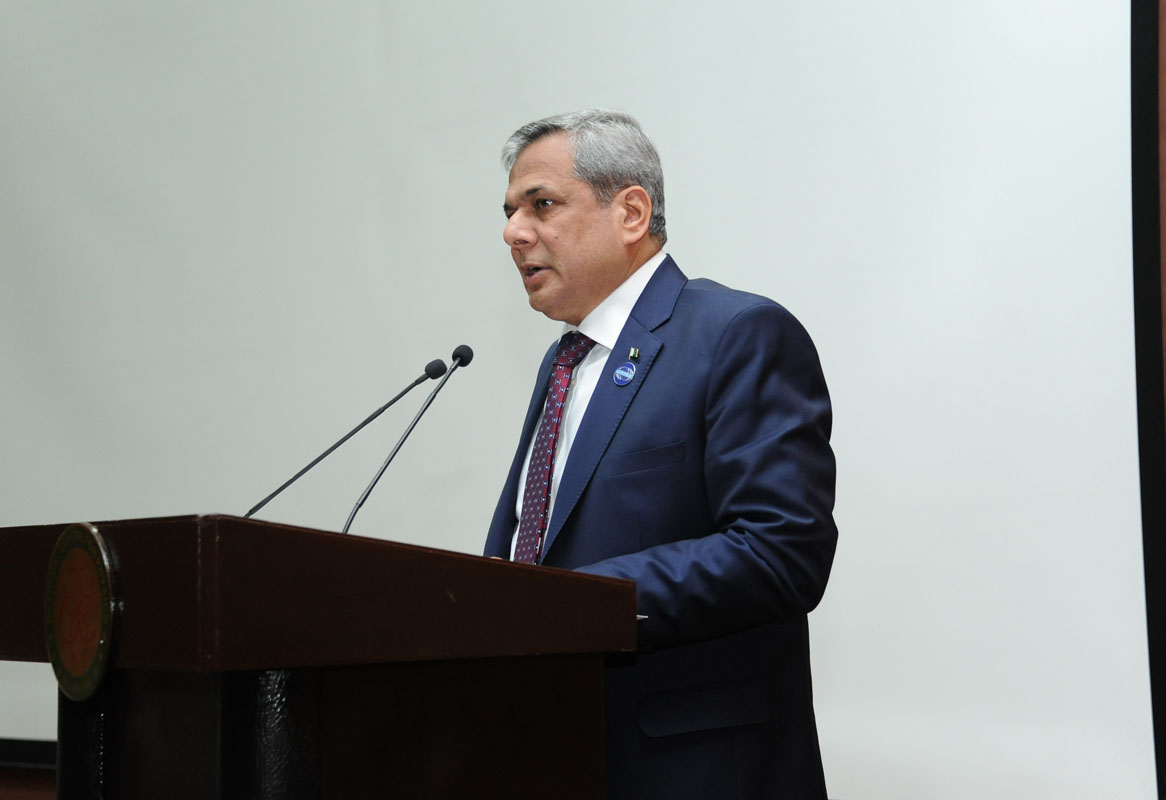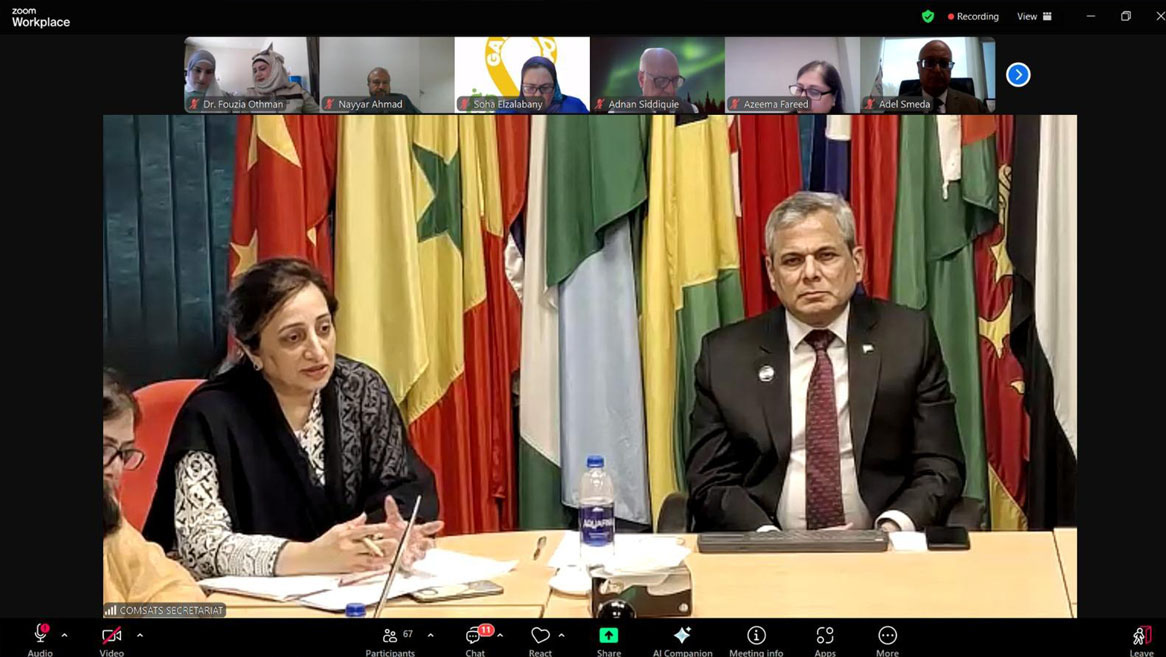The National Centre for Physics (NCP), Pakistan, organized its flagship training program, titled ‘International School on Physics & Allied Disciplines (ISPAD), from March 4-8 2024, at its premises in Islamabad. The event had patronage of the Abdus Salam International Centre for Theoretical Physics (ICTP), Italy, and support of Commission on Science and Technology for Sustainable Development in the South (COMSATS), and KTH Royal Institute of Technology, Sweden, as co-organizers.
The School provides a platform for local and foreign participants to exchange scientific knowledge and generate enthusiasm for science and innovation. Over 200 young Pakistani M.Phil./Ph.D. students, researchers, and university faculty member benefited from the training, which was conducted by local and foreign subject expert.
Dr. Qaiser Ahsan, Director NCP, delivered the welcome remarks during the inaugural ceremony of ISPAD, held on 4th March 2024, expressing gratitude to the Chief Guest, the Executive Director COMSATS, Ambassador Zakaria, and acknowledging the presence of foreign guests.
Addressing the inaugural ceremony, Ambassador Zakaria, emphasized the pivotal role of high-energy and condensed matter physics in uncovering the universe’s fundamental essence and material behaviors. He highlighted the potential for revolutionary innovation through the synergy between artificial intelligence and physics, leveraging advanced computational techniques for scientific inquiry.

Ambassador Zakaria emphasized the importance of exchanging ideas and fostering collaboration. He also outlined the challenges faced by developing countries in Science, Technology, and Innovation (ST&I) due to limited resources and infrastructure. Further, he advocated for a proactive approach to tackle this issue, emphasizing the necessity of investing in education, fostering multilateral collaborations, and aligning policies with socio-economic development objectives. Ambassador Zakaria highlighted the pivotal role of regional and international cooperation in ST&I, particularly through South-South and triangular collaboration, which he regarded as indispensable for achieving sustainable socio-economic progress. Furthermore, he emphasized the importance of pooling resources and expertise to empower nations in navigating unforeseen challenges effectively.
Ambassador Zakaria also elucidated the role of COMSATS as an inter-governmental organization dedicated to advancing science, technology, and innovation-led sustainable development across its 27 Member States. He highlighted COMSATS’ efforts in promoting South-South and Triangular Cooperation in science and technology, facilitating exchanges, knowledge networking, capacity-building, and collaborative research among member countries. He underscored recent initiatives in fields like Artificial Intelligence-based data analytics, IT trainings, precision agriculture, renewable energy, and electric vehicles.
As head of partner organization to NCP for holding the event, Amb. Zakaria extended gratitude to the distinguished scientists and subject experts, young scientists, faculty members and researchers for their participation in the event. He commended the National Centre for Physics for its noteworthy contributions to the advancement of science and technology. He also committed to strengthening ties with organizations like NCP and ICTP to enhance capacity-building efforts for developing countries.
The inaugural ceremony also featured talks by Dr. Joseph J. Niemela, Senior Scientist (Emeritus) and Advisor International Programs, ICTP, Italy, and Dr. Ishaq Ahmed, Director-General COE, NCP.
The four-day School consisted of plenary, parallel and poster sessions, as well as tutorials and structured discussions relevant to various technical activities in the chosen topics. These topics mainly focused on three sub-areas of Physics, i.e., High-Energy Physics; Condensed Matter Physics; and Artificial Intelligence for physics.
The training concluded on the 8th March 2024 after holding deliberations on the interesting topics covered under these three themes of ISPAD’24, including: Physics potential of the high-luminosity phase of the LHC, Perspectives for a possible future high-Luminosity HL-LHC, Standard model and beyond searches, Properties of Higgs Boson, Flavor physics, Neutrino physics, Silicon and gaseous detectors in HEP, Statistical concepts in HEP, Condensed matter theory, Nanoscience and technology, Computational nanoscience, Quantum nanotechnology, Laser-matter interaction, Advanced characterization techniques, Semiconductor science and technology, Medical image processing, Quantum machine learning, Machine and deep learning for physics applications, Physical modelling, and Simulations for robotics, data science for physicists, and Python programming.






